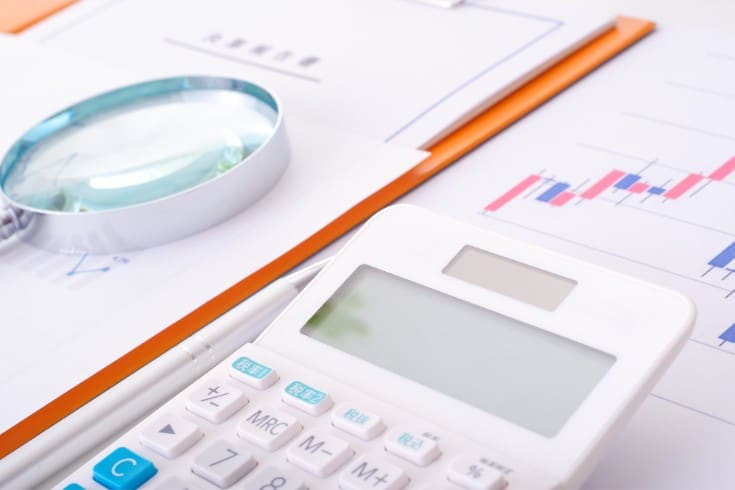Accounting Auditors in Japanese Corporate Law: A Comprehensive Explanation of Their Roles, Powers, and Responsibilities

The reliability of corporate financial information is the foundation of sound economic activity and international investment and transactions. For investors and creditors to make decisions with confidence, it is essential that the financial statements prepared by companies are accurate and fair, and this is guaranteed by an independent third party. Under Japanese corporate law, this critically important role is fulfilled by the ‘Accounting Auditor.’ The Accounting Auditor system is an official institution established by the Japanese Companies Act, and it serves as a central entity in ensuring the transparency and reliability of corporate accounting. This system is not merely a domestic procedure but also a significant indicator that Japanese corporate governance meets international standards. Accounting Auditors are professionals with advanced qualifications, such as Certified Public Accountants or Audit Corporations, who conduct rigorous audits from their independent positions. Particularly for large companies with significant social impact, the installation of an Accounting Auditor is legally mandated, reflecting the notion that as a company’s economic scale grows, so does its social responsibility for financial reporting. This article comprehensively explains the legal significance of Accounting Auditors, the procedures for their appointment, their specific duties and authorities, and the heavy responsibilities they bear, based on the provisions of the Japanese Companies Act and actual case law.
The Significance and Purpose of the Auditor System Under Japanese Corporate Law
An auditor, as established under Japanese Corporate Law, is an institutional body of a company whose primary purpose is to conduct accounting audits of the company’s financial documents. The underlying philosophy of this system is to ensure the reliability of financial reporting through audits by external accounting professionals who are independent from the company’s management. This protects stakeholders, including shareholders and creditors. By having the financial information created by the company objectively verified by a third-party auditor and expressing an opinion on its appropriateness, the information gains significantly higher credibility. This function is essential for maintaining a company’s social credit and enabling smooth fundraising from financial markets.
Japanese Corporate Law specifically mandates the appointment of auditors for “large companies.” According to Article 2, Paragraph 6 of the Japanese Corporate Law, a large company is defined as one with a capital stock of 500 million yen or more on the balance sheet of the last fiscal year, or with a total debt amount of 20 billion yen or more. Behind this provision lies the legal philosophy that the larger a company becomes, the more significant the impact of its business activities on society and the economy. Large companies have numerous shareholders, creditors, employees, and business partners, and the health of their financial situation is directly linked to the interests of these many stakeholders. Therefore, the law demands higher financial transparency for such enterprises and mandates strict oversight by external experts, thereby aiming to ensure the overall stability of the economy.
Comparing Accounting Auditors and Statutory Auditors in Japan
Understanding the structure of corporate governance in Japan is crucial, and recognizing the differences between accounting auditors and statutory auditors, a separate entity, is essential. Both play supervisory roles within a company, yet their roles and authorities differ fundamentally.
The most significant difference lies in the scope of the audit. The duties of an accounting auditor are limited to ‘accounting audits’ as the name suggests. This means their primary mission is to verify whether financial statements, such as balance sheets and income statements, accurately represent the company’s financial position and performance. On the other hand, the audit scope of a statutory auditor generally includes ‘business audits’ in addition to accounting audits. Business audits refer to broader activities that monitor whether the execution of duties by directors is compliant with laws and the articles of incorporation and is conducted appropriately.
Qualification requirements also differ. Under Article 337, Paragraph 1 of the Japanese Companies Act, only certified public accountants or audit corporations can become accounting auditors, reflecting the need for high-level expertise in accounting audits. In contrast, there are no specific professional qualifications required by law for statutory auditors.
Furthermore, their positions within the company are different. Accounting auditors are independent ‘external’ professionals who enter into an audit contract with the company. In contrast, statutory auditors are ‘internal’ officers appointed by the shareholders’ meeting and perform their duties independently from the board of directors.
These two entities form a dual oversight system by complementing each other. Accounting auditors, as external accounting experts, ascertain the ‘facts’ regarding the accuracy of financial information, while internal governance officers, the statutory auditors, use these facts to examine the ‘process’ of directors’ management decisions for validity and legality. For example, accounting irregularities discovered by accounting auditors are reported to the statutory auditors, providing crucial information for pursuing the directors’ responsibilities. In this way, by working together, they achieve more effective corporate governance.
The table below summarizes the main differences between accounting auditors and statutory auditors.
| Aspect | Accounting Auditor | Statutory Auditor |
| Main Role | Audit the accuracy of financial statements | Audit the legality of directors’ execution of duties |
| Audit Scope | Accounting Audit | Business Audit and Accounting Audit in principle |
| Qualification Requirements | Certified Public Accountant or Audit Corporation | None in particular |
| Position | External to the company | Internal to the company (officer) |
| Term of Office | 1 year (reappointment possible) | 4 years in principle |
Appointment of Accounting Auditors in Japan
The process for appointing accounting auditors is detailed under Japanese Corporate Law to ensure their independence.
Firstly, there are strict qualification requirements and disqualifications for accounting auditors. As mentioned earlier, only certified public accountants or audit corporations can become accounting auditors. Furthermore, to avoid compromising their independence, Article 337, Paragraph 3 of the Japanese Corporate Law prohibits individuals with certain conflicts of interest from becoming accounting auditors. For example, individuals who are part of the company’s subsidiaries or those who receive continuous compensation for non-audit work from the company or its subsidiaries are ineligible to serve as accounting auditors.
Accounting auditors are appointed by an ordinary resolution at the shareholders’ meeting (Article 329, Paragraph 1 of the Japanese Corporate Law). A critical point here is that the authority to decide on the content of proposals for the appointment or dismissal of accounting auditors submitted to the shareholders’ meeting lies not with the directors but with the statutory auditors (or the audit committee or similar auditing bodies). This separation of powers, where the management determines remuneration and the statutory auditors decide on personnel matters, is a clever legal design to protect the independence of accounting auditors, ensuring they can conduct rigorous audits without being influenced by the management’s preferences.
The term of accounting auditors is set to end at the conclusion of the ordinary shareholders’ meeting for the last fiscal year ending within one year after their appointment (Article 338, Paragraph 1 of the Japanese Corporate Law). However, if no separate resolution for dismissal or non-reappointment is made at this ordinary shareholders’ meeting, the accounting auditor is deemed to be reappointed (Article 338, Paragraph 2 of the Japanese Corporate Law). This “deemed reappointment” system stabilizes the position of accounting auditors and further strengthens their independence by ensuring that their term continues unless there is an active resolution for dismissal.
As for dismissal, it is possible at any time by a resolution of the shareholders’ meeting (Article 339 of the Japanese Corporate Law), but statutory auditors can dismiss an accounting auditor with the consent of all statutory auditors if the accounting auditor violates their professional duties or engages in misconduct unfit for an accounting auditor (Article 340 of the Japanese Corporate Law). This too is a powerful authority vested in statutory auditors to maintain the independence and audit quality of accounting auditors.
The Duties and Powers of Accounting Auditors Under Japanese Corporate Law
To ensure that accounting auditors can effectively carry out their duties, Japanese Corporate Law grants them a wide range of responsibilities and powers. These powers are primarily stipulated in Article 396 of the Japanese Companies Act.
The core duty of an accounting auditor is to audit a company’s financial documents, including the attached detailed statements, interim financial documents, and consolidated financial statements. Upon completing the audit, they must prepare an ‘Audit Report’ summarizing the results in accordance with the provisions of the Ministry of Justice (Article 396, Paragraph 1 of the Japanese Companies Act). This Audit Report serves as a reliable source of information for shareholders and creditors.
To perform this duty, accounting auditors are endowed with strong investigative powers. If necessary for the audit, they can ‘at any time’ inspect and copy the company’s accounting books and related documents. They can also request accounting reports from directors, accounting advisors, managers, and other employees (Article 396, Paragraph 2 of the Japanese Companies Act). Management inherently holds more internal information than external auditors. This investigative power is an essential tool to overcome this information asymmetry, enabling accounting auditors to actively collect and verify information, rather than just passively receiving it.
This investigative authority also extends to subsidiaries, not just the parent company. When necessary for their duties, accounting auditors can request accounting reports from subsidiaries or investigate the business and financial status of these subsidiaries (Article 396, Paragraph 3 of the Japanese Companies Act). However, subsidiaries may refuse to report or be investigated if there are ‘valid reasons’ for refusal (Article 396, Paragraph 4 of the Japanese Companies Act).
Furthermore, accounting auditors have an important duty to report. If they discover any acts of misconduct in the execution of duties by directors, or significant facts that violate laws or the articles of incorporation, they must promptly report these to the statutory auditor (or the auditing committee or other auditing bodies) (Article 397 of the Japanese Companies Act). This ensures that issues identified by accounting auditors are not only recorded in reports but are also quickly communicated to the company’s internal supervisory bodies, ensuring that corrective measures are taken.
The Duties and Legal Responsibilities of Auditors in Japan
Auditors in Japan bear significant legal duties and responsibilities commensurate with their substantial authority. These duties and responsibilities demand high ethical standards and meticulousness from auditors as professionals, serving as crucial disciplines to ensure the quality of their audits.
The most fundamental duty of an auditor is the “duty of care of a prudent manager” (due diligence), which stems from the fiduciary relationship between the company and the auditor as established by Article 330 of the Japanese Companies Act and the application of Article 644 of the Japanese Civil Code. Due diligence means that auditors are obligated to perform their duties with the level of care that is objectively expected of them, given their professional status and capabilities. Whether an auditor’s actions meet this standard is the criterion for determining the responsibilities discussed below.
If this duty is neglected, the auditor is first and foremost liable to the company. Article 423, Paragraph 1 of the Japanese Companies Act stipulates that if a company suffers damage due to the auditor’s dereliction of duty (negligence in duty), the auditor is responsible for compensating the company for that damage. This represents a direct liability for professional negligence.
Furthermore, auditors may also be liable to third parties, such as shareholders and creditors, who have conducted transactions based on trust in the audit report. This third-party liability is defined in Article 429 of the Japanese Companies Act and has a two-tier structure. Firstly, if an auditor performs their duties with “malice or gross negligence,” they are liable to compensate for any damage incurred by third parties (Japanese Companies Act, Article 429, Paragraph 1). The requirement of “gross negligence” is set high because auditing involves professional judgment, and the law aims to prevent auditors from being unduly burdened with unlimited liability for simple mistakes, allowing them to perform their duties without fear of repercussions.
Secondly, if there is a “false statement” regarding significant matters that should be included in the audit report, the liability becomes more severe. In this case, unless the auditor can “prove” that they were not negligent in their actions, meaning they were without fault, they cannot escape liability for damages to third parties (Japanese Companies Act, Article 429, Paragraph 2, Item 4). This is known as a shift in the burden of proof, reflecting the legislative intent to impose a particularly heavy duty of care regarding the contents of the audit report, which is the final product published to the market. This two-tiered structure of liability is based on a sophisticated legal balance that seeks to reconcile the protection of third parties with the avoidance of excessive burdens on auditors.
Court Cases Involving the Liability of Accounting Auditors in Japan
To understand how the abstract legal provisions regarding the liability of accounting auditors are interpreted and applied in actual disputes, it is effective to examine specific court cases. Japanese courts have tended to raise the standard of care required of accounting auditors over time, in line with changes in the era.
A landmark decision regarding the standard of liability towards the company was made by the Supreme Court on July 19, 2021 (2021). This case involved the liability of a limited audit officer, but the logic of the judgment also applies to accounting auditors. An employee of the company had embezzled deposits over many years and concealed the fraud by submitting copies of forged bank balance certificates. The lower courts had denied liability, stating that it was sufficient for the audit officer to verify that the submitted documents matched the accounting books. However, the Supreme Court overturned this decision, stating, “An audit officer should not assume that the contents of the accounting books are accurate and conduct an audit of the financial documents based on that assumption.” The court held that there is an obligation to conduct further investigation, such as verifying the original documents, especially when important evidence like balance certificates is submitted as copies, which could raise doubts about their reliability. This judgment is significant in that it clearly demonstrates a higher standard of care, indicating that accounting auditors should not merely follow formal procedures but should also perform substantive verification with professional skepticism as experts.
Regarding liability to third parties, there are two contrasting court cases. One is the Kimuraya case (Tokyo District Court, November 28, 2007). In this case, the company had cleverly inflated its inventory assets on a large scale, but the accounting auditor had conducted a more stringent audit procedure than usual, judging that the risk was high and following the generally accepted auditing standards. The court held that the accounting auditor, despite exercising due professional care, was not liable for failing to detect the sophisticated fraud that was difficult to uncover. This judgment indicated that compliance with auditing standards could function as a “safe harbor” for accounting auditors.
The other is the widely publicized Livedoor case (Tokyo District Court, May 21, 2009). In this case, large-scale window-dressing of financial statements was conducted, and the accounting auditor had expressed an appropriate opinion. However, there was evidence suggesting that the accounting auditor was aware of the company’s fraudulent accounting practices or had at least intentionally overlooked them. The court found that the audit firm was liable for damages caused to investors. The crucial difference from the Kimuraya case was the lack of independence and integrity on the part of the accounting auditor. This judgment shows that even formal defenses of adhering to auditing standards are powerless when involvement in fraud or malice is established.
The trend of these court cases indicates that the standard of responsibility that courts expect from accounting auditors is evolving from mere ‘compliance with procedures’ to ‘exercising substantive professional skepticism.’ Accounting auditors are now legally required to act proactively, not just follow the rulebook, but always maintain a critical perspective and not overlook signs of fraud.
Summary
As detailed in this article, auditors are an essential institution for ensuring the reliability of financial reporting by companies, as mandated by the Japanese Companies Act. The strict qualification requirements, appointment by the shareholders’ meeting, and supervision by the board of corporate auditors are designed to guarantee their independence. Additionally, their extensive investigative powers serve as a tool to effectively carry out their duties, while the duty of due care and the significant legal responsibilities towards the company and third parties act as a discipline to ensure the quality of their work. The auditor system is a foundation that supports the transparency and fairness of the Japanese market, and it forms the basis of trust for both domestic and international investors.
At Monolith Law Office, we have a proven track record of providing extensive advice and support on complex legal issues related to the appointment, duties, powers, and responsibilities of auditors to a multitude of clients within Japan. Our firm is staffed with multiple English-speaking attorneys who are qualified in foreign jurisdictions and possess deep expertise in Japanese corporate law combined with international practical experience. Leveraging this unique strength, we are fully equipped to assist foreign companies and investors in accurately understanding and appropriately responding to critical aspects of corporate governance in the Japanese business environment.
Category: General Corporate





















